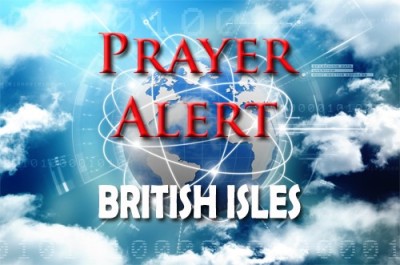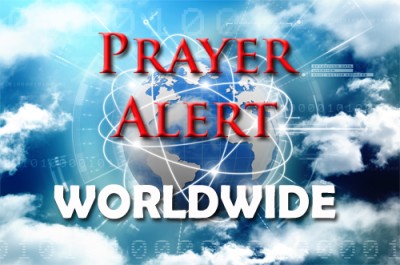Care homes closing doors as Omicron spreads
06 Jan 2022Hundreds of care homes are refusing new admissions for 14 to 28 days because of Omicron, increasing pressure on hospitals unable to discharge patients into the community, and adding another pressure to an already challenging situation. 70% of MHA homes, a not-for-profit care provider, are refusing new residents because of Covid outbreaks and staff shortages. Four Seasons Healthcare has two or more cases in 40% of its homes: government guidance is not to accept new arrivals. The chief executive of NHS Providers said, ‘Patients deteriorate if they are fit to discharge but can’t leave their hospital beds’. He said it was also difficult to find room for serious cases coming via accident and emergency departments. Temporary settings may be installed to allow hospital patients to be released, and some health trusts have set up temporary care facilities in hotels with live-in staff from abroad.
2022 events
06 Jan 2022The postponed Lambeth Conference should take place this summer, with Anglican bishops and archbishops coming to Canterbury for a once-in-a-decade event. Divides over sexuality indicate that some African bishops will boycott it. Same-sex partners of gay bishops are asked not to attend. Pray for Justin Welby to use Lambeth to foster greater unity. After two years of cancellations, Spring Harvest, New Wine and other Christian festivals plan to go ahead, after suffering huge financial losses. Persecution of religious minorities will be addressed as the UK hosts a global gathering of ambassadors for religious freedom. Pray for good to come from it. Evangelist Franklin Graham’s 2021 UK tour had to be cancelled following complaints that he spoke negatively about homosexuality and Islam. The tour is back on. More protests are to be expected, but Graham promises to speak of God’s love and nothing else.
Prayer for 2022
06 Jan 2022The following is based on declarations by Suzanne Ferrett: ‘Pray for hope, vision and courage as God has been changing us in the hidden place to bring change in the visible place. Pray for Christians to move forward, walking and speaking in obedience to God’s spirit. May the gospel go forward in the supermarkets and on the streets, in families and in workplaces; as many speak, salvations and healings will take place. In the Name of Jesus, we pray over the Government and over every bill, potential bill, amendment, treaty, or law made in 2022; may they align with God’s Kingdom purposes. May God’s Spirit brood over the United Kingdom so that longstanding prejudices are removed, wounds are healed, and superiority is replaced with humility. May every culture work together, overcoming divides, so that giftings and callings are honoured, welcomed and utilised.
Regular vaccines for all not needed, says expert
06 Jan 2022‘Vaccinating everyone on the planet against Covid-19 regularly every four to six months is not sustainable or affordable; the most at risk should be identified and prioritised instead’, says Professor Sir Andrew Pollard, who helped develop the Oxford-AstraZeneca vaccine. He said the vaccine rollout had gone ‘extremely well’ in the UK, but other parts of the world were falling behind. ‘We haven't even managed to vaccinate everyone in Africa with one dose, so we're certainly not going to get to a point where providing fourth doses for everyone is manageable. There is not full certainty on whether another booster might be needed in the UK.’ He said the UK would be in a good position if variants continued to lead to milder disease, as has been the case with Omicron. Boris Johnson said the Government doesn't see any data to suggest that further restrictions would be the right approach in England, but the public should be in no doubt it will be a difficult time for the NHS.
Russia: crackdown on ‘dissidents’
06 Jan 2022Russia declared Nadezhda Tolokonnikova (a member of the Pussy Riot band) and prominent satirist Viktor Shenderovich ‘foreign agents’ as authorities press ahead with a crackdown on dissent. The justice ministry also added to its list of ‘foreign agents’ journalist Taisiya Bekbulatova and art collector Marat Gelman. ‘These people systematically distribute materials to an indefinite circle of persons, while receiving foreign funds.’ the government said in a statement. Shenderovich is a prominent anti-Kremlin satirist and political observer. Anyone identified as a ‘foreign agent’ must disclose sources of funding and accompany all texts, videos and social media posts with a caption mentioning content from a ‘foreign agent’: this is reminiscent of the Soviet-era term ‘enemy of the people’. Independent media outlets including Rain TV and a popular Russian-language website have also been branded as foreign agents. Russia claims that there is increased interference from abroad, meddling in Russian affairs.
Bosnia: Serb leader stirs talk of war
06 Jan 2022Bosnia has three presidents. Each one represents a particular ethnic group, and the fragile multiethnic government faces its greatest crisis since the Balkan wars. Serb nationalist leader Milorad Dodik is threatening to tear Bosnia apart by withdrawing the Serb territory he leads from Bosnia. He has stopped meeting the other regional presidents and vowed to withdraw from the armed forces and tax agency in favor of his own agencies. Political rivals and foreign diplomats say recent scandals suggest his rhetoric is to deflect corruption allegations. But in a region where the war shadow is everywhere, Bosnians fear their country’s peace is threatened. ‘It will not be peaceful,’ warned Sefik Dzaferovic, one of the three presidents. An opposition party leader said, ‘He hates stability because he then has to explain why we are living like we do. He plays on people's emotions regardless of the consequences.’ The UN called it ‘the greatest threat’ to Bosnia’s survival since 1990.
South Africa: after Tutu
06 Jan 2022Archbishop Desmond Tutu’s funeral was on 1 January. He was a driving force behind ending racial segregation and discrimination in an era when South Africa taught the world what courage and reconciliation could achieve. The contrast between those times of sacrifice, justice and glory, and today's corrupt political realities are stark. Deep economic frustration, high unemployment and inequality is governed by the African National Congress (ANC), which is at open war with itself and full of corruption. The day after Tutu’s funeral a fire severely ravaged much of the houses of parliament, causing ‘significant damage’ to the new assembly wing, including the National Assembly chamber where lawmakers sit. While firefighters were still working on ‘hotspots’ further flames erupted, threatening to cause the entire structure to collapse. We can pray that as men rebuild the houses of parliament, God will raise up and anoint political and community leaders to repair the damage done by mismanagement and corruption.
China: Christian school raided
06 Jan 2022Authorities from Siming District raided a Christian school and fined the person in charge of the school 100,000 yuan (£11,619.14). They said that they had discovered religious education training without authorisation, and demanded that all activities stop. Any appeal must be made within three days of receiving the notice and fine. In recent years the government has intensified repression on Christian education, with constant raids and arrests. Also, lawmakers issued new policies to tighten control over homeschooling and private education. In the Family Education Promotion, the government now has authority over education outside and inside the home. Christians constitute the majority of the homeschooling population, so it is anticipated that more Christian schools will face further persecution in the future. Christian churches and church leaders are also being persecuted multiple times.







